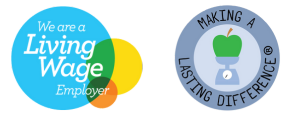On Thursday 12 August, SIAA hosted a roundtable for members on independent advocacy & youth justice with Donna McEwan and Debbie Nolan from the Children’s and Young People’s Centre for Justice (CYCJ). This was the second roundtable held by SIAA on this subject during 2021.
At the roundtable, Donna McEwan and Debbie Nolan shared a very helpful overview of the different elements that involve youth justice and the key role of independent advocacy.
Secure Care Pathways and Standards
Debbie explained that most children in secure care have experienced childhood adversity and difficulties. She described the situation and concerns around specific groups of vulnerable children, including children at risk of harm, discriminated against and with their liberty restricted. She mentioned that there could also be health concerns and discrimination if they were involved in any offensive behaviour.
Debbie described how the secure care aim is to provide intensive support, care and education to keep these children safe and to meet their high levels of need and vulnerability. Therefore, the Secure Care Pathways and Standards were created to improve the experiences of children and young people who are in or on the edges of secure care, leading to better and brighter outcomes.
She emphasized that these standards apply to everyone involved: professionals working in the sector, young people and their families. There are 44 standards in total that focus on what should be expected in secure care. Most of these standards link to advocacy by some means, nevertheless, there are two particularly relevant to the field:
- Standard 22: “I have on-going access to the legal advice, representation and high-quality independent advocacy I need from as soon as possible after I arrive at the service”.
- Standard 39: “I understand my rights when planning for my future and I have access to the legal advice, representation and high-quality independent advocacy I need”.
Debbie added that we must take ensure that we are challenging and changing the systems that discriminate against children. Children should be able to participate and have input into the design and delivery of services that will affect them, instead of being merely passive recipients. Lived experiences play a key role.
A gap was identified related to the inaccessibility of the data in the field. Since the data and evidence are difficult to find, shaping things appropriately can be challenging.
Working with children in conflict with the law 2021: standards
In June 2021, the Scottish government published the standards for Working with children in conflict with the law.
These updated standards are very positive, however, a gap was identified as they were not produced with young people, although they were consulted. This will be amended for future editions where the standards will be coproduced with young people.
Debbie explained that some of these standards are especially significant to independent advocacy:
- Standard 1 – Children’s Rights and Participation
- Standard 3 – Children’s Hearing System
- Standard 6 – Deprivation of liberty
Additionally, Debbie highlighted the importance of the incorporation of the Convention on the Rights of the Child into domestic law. This represents a meaningful change as rights of all children will be upheld and protected by this legal framework.
The Scottish Government announced in its Programme for Government that it aims to introduce a Children’s Care and Justice Bill, which will be enacted to help safeguard young people in the youth justice system. The Children’s Hearings System will also be reviewed and revised by working with The Promise Scotland.
Finally, she encouraged our members to consider how everything pieces together and the importance of working collectively and asking the hard questions to keep improving youth justice.
Resources
- Justice for children and young people – a rights-respecting approach: vision and priorities: https://www.gov.scot/publications/rights-respecting-approach-justice-children-young-people-scotlands-vision-priorities/
- Secure care: pathway and standards: https://www.gov.scot/publications/secure-care-pathway-standards-scotland/
- Secure Care and Pathways Scotland: https://www.cycj.org.uk/wp-content/uploads/2020/10/Info-Sheet-90.pdf
- Working with Children & Young People Guidelines for Advocates: https://www.siaa.org.uk/wp-content/uploads/2021/02/1516SIA05_Childrens_digital-isbn.pdf
- Standards for those working with children in conflict with the law 2021: https://www.gov.scot/publications/standards-those-working-children-conflict-law-2021/pages/3/
- The Promise: https://thepromise.scot/
- Use and impact of bail and remand with children in Scotland: Child friendly resources: http://www.cycj.org.uk/resource/bail-and-remand-accessible/

